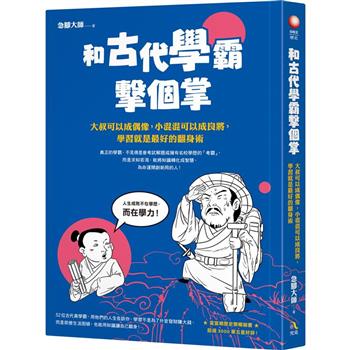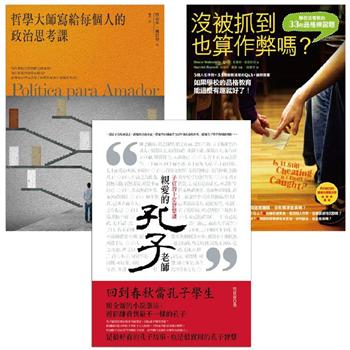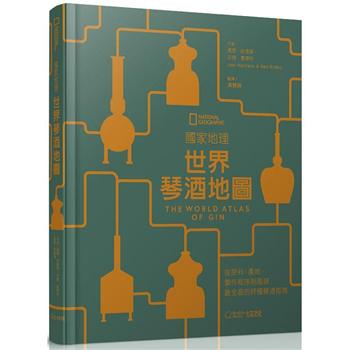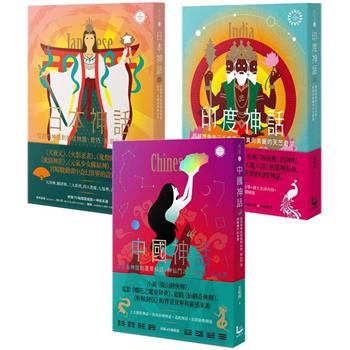COVID-19疫情下企業社會責任(CSR)的實務商模戰略
中、英文同步 與國際無縫接軌
本書刊的誕生關鍵,隨著全球變遷與COVID-19疫情帶來的衝擊,在聯合國2020年6月發布加強全球數位協作指南路徑圖《Report of Secretary General Roadmap for Digital Cooperation》,薪傳智庫數位科技以實務商模戰略緩解疫情危機;並考量各產業企業社會責任宜採循序漸進方式落實,透過ESAA與SESP數位組織化逆境布局為轉機的應變能力,提升產業/組織營運的擴展性和靈活性,帶動增加經濟和社會利益的高效應用,攜手企業在推動CSR過程中索引的路徑系統,與國際接軌同時也創造企業與社會間的永續循環。
| FindBook |
有 3 項符合
薪傳智庫CSR實務商模戰略的圖書 |
| |
薪傳智庫CSR實務商模戰略【金石堂、博客來熱銷】 出版日期:2021-05-31 |
| 圖書館借閱 |
| 國家圖書館 | 全國圖書書目資訊網 | 國立公共資訊圖書館 | 電子書服務平台 | MetaCat 跨館整合查詢 |
| 臺北市立圖書館 | 新北市立圖書館 | 基隆市公共圖書館 | 桃園市立圖書館 | 新竹縣公共圖書館 |
| 苗栗縣立圖書館 | 臺中市立圖書館 | 彰化縣公共圖書館 | 南投縣文化局 | 雲林縣公共圖書館 |
| 嘉義縣圖書館 | 臺南市立圖書館 | 高雄市立圖書館 | 屏東縣公共圖書館 | 宜蘭縣公共圖書館 |
| 花蓮縣文化局 | 臺東縣文化處 |
|
|
圖書介紹 - 資料來源:博客來 評分:
圖書名稱:薪傳智庫CSR實務商模戰略
內容簡介
作者介紹
作者簡介
薪傳智庫數位科技股份有限公司
薪傳智庫數位科技股份有限公司是一家針對海內外的各產業/組織,提供CSR創新營運模式的應用實務,以GRI通用準則藉由O2O2O線上數位系統盤點各產業/組織DNA,從核心價值客製各產業/組織落實CSR總體經營戰略,ESAA與SESP方法服務更多產業/組織申辦取得國家政策、中央計畫、地方補助、數位科技轉型與國際發展的能量支持;建構一條龍CSR全方位企業健檢的檢視與稽核,以及數位雲端資料庫留存暨各層級隨時備查與調整機制,將CSR報告書同步第三方公正機構聯合會計師與律師做年度CSR報告背書簽證,包含專業的全文英譯接軌國際商機與競爭力,創造多重高效價值SROI量化與質化的社會影響力,積極打造創新的價值鏈產業環境,聚焦廣為接受的共識性定義,讓政府與各產業/組織共創美好的體制與環境持續發展獲利。
薪傳智庫數位科技股份有限公司
薪傳智庫數位科技股份有限公司是一家針對海內外的各產業/組織,提供CSR創新營運模式的應用實務,以GRI通用準則藉由O2O2O線上數位系統盤點各產業/組織DNA,從核心價值客製各產業/組織落實CSR總體經營戰略,ESAA與SESP方法服務更多產業/組織申辦取得國家政策、中央計畫、地方補助、數位科技轉型與國際發展的能量支持;建構一條龍CSR全方位企業健檢的檢視與稽核,以及數位雲端資料庫留存暨各層級隨時備查與調整機制,將CSR報告書同步第三方公正機構聯合會計師與律師做年度CSR報告背書簽證,包含專業的全文英譯接軌國際商機與競爭力,創造多重高效價值SROI量化與質化的社會影響力,積極打造創新的價值鏈產業環境,聚焦廣為接受的共識性定義,讓政府與各產業/組織共創美好的體制與環境持續發展獲利。
目錄
序
一、OECD–CSR
(一)COVID-19 疫情
(二)企業有四個不夠
(三)企業健檢與簽證
二、薪傳智庫數位科技股份有限公司
(一)三大面向之社會影響力
(二)CSR 專案帶動相關效益
(三)中華薪傳智庫協會NGO
三、國際指標
(一)GRI 準則為全世界CSR 新標準
(二)SDG18 數位科技為人類及地球謀福祉
(三)2021 是ESG 發展元年帶來轉機與希望
四、CSR 實務行動
(一)教育推動篇
(二)空氣循環篇
(三)海洋公約篇
(四)前瞻建設篇
(五)永續城市篇
(六)農業經濟篇
(七)企業社會責任(CSR) 報告書的策略模式與撰寫要領
(八)CSR 實務商模戰略——借鏡B 型企業模式
Content
Foreword
A. International situation Analysis OECD-CSR
a. COVID-19 epidemic
b. Four shortcomings of enterprises
c. Enterprise health check and Visa
B. Company Establish. TransAct, Inc.
a. Influence
b. Benefit
c. TransAct Association NGO
C. SDGs Goal
a. GRI Standards become new standards for CSR worldwide
b. SDG Goal 18-Digital technology for the well-being of mankind and the planet
c. 2021 is the first year of ESG development, it brings opportunities and hope
D. CSR practical action
a. University Social Responsibility (USR)
b. Global Action
c. Global Ocean Treaty
d. Circular Economy
e. Sustainable City, Future City
f. New Agricultural Innovation
g. The Strategy Models and Writing Essentials of a Corporate
Social Responsibility (CSR) Report
h. B Corp.
一、OECD–CSR
(一)COVID-19 疫情
(二)企業有四個不夠
(三)企業健檢與簽證
二、薪傳智庫數位科技股份有限公司
(一)三大面向之社會影響力
(二)CSR 專案帶動相關效益
(三)中華薪傳智庫協會NGO
三、國際指標
(一)GRI 準則為全世界CSR 新標準
(二)SDG18 數位科技為人類及地球謀福祉
(三)2021 是ESG 發展元年帶來轉機與希望
四、CSR 實務行動
(一)教育推動篇
(二)空氣循環篇
(三)海洋公約篇
(四)前瞻建設篇
(五)永續城市篇
(六)農業經濟篇
(七)企業社會責任(CSR) 報告書的策略模式與撰寫要領
(八)CSR 實務商模戰略——借鏡B 型企業模式
Content
Foreword
A. International situation Analysis OECD-CSR
a. COVID-19 epidemic
b. Four shortcomings of enterprises
c. Enterprise health check and Visa
B. Company Establish. TransAct, Inc.
a. Influence
b. Benefit
c. TransAct Association NGO
C. SDGs Goal
a. GRI Standards become new standards for CSR worldwide
b. SDG Goal 18-Digital technology for the well-being of mankind and the planet
c. 2021 is the first year of ESG development, it brings opportunities and hope
D. CSR practical action
a. University Social Responsibility (USR)
b. Global Action
c. Global Ocean Treaty
d. Circular Economy
e. Sustainable City, Future City
f. New Agricultural Innovation
g. The Strategy Models and Writing Essentials of a Corporate
Social Responsibility (CSR) Report
h. B Corp.
|











